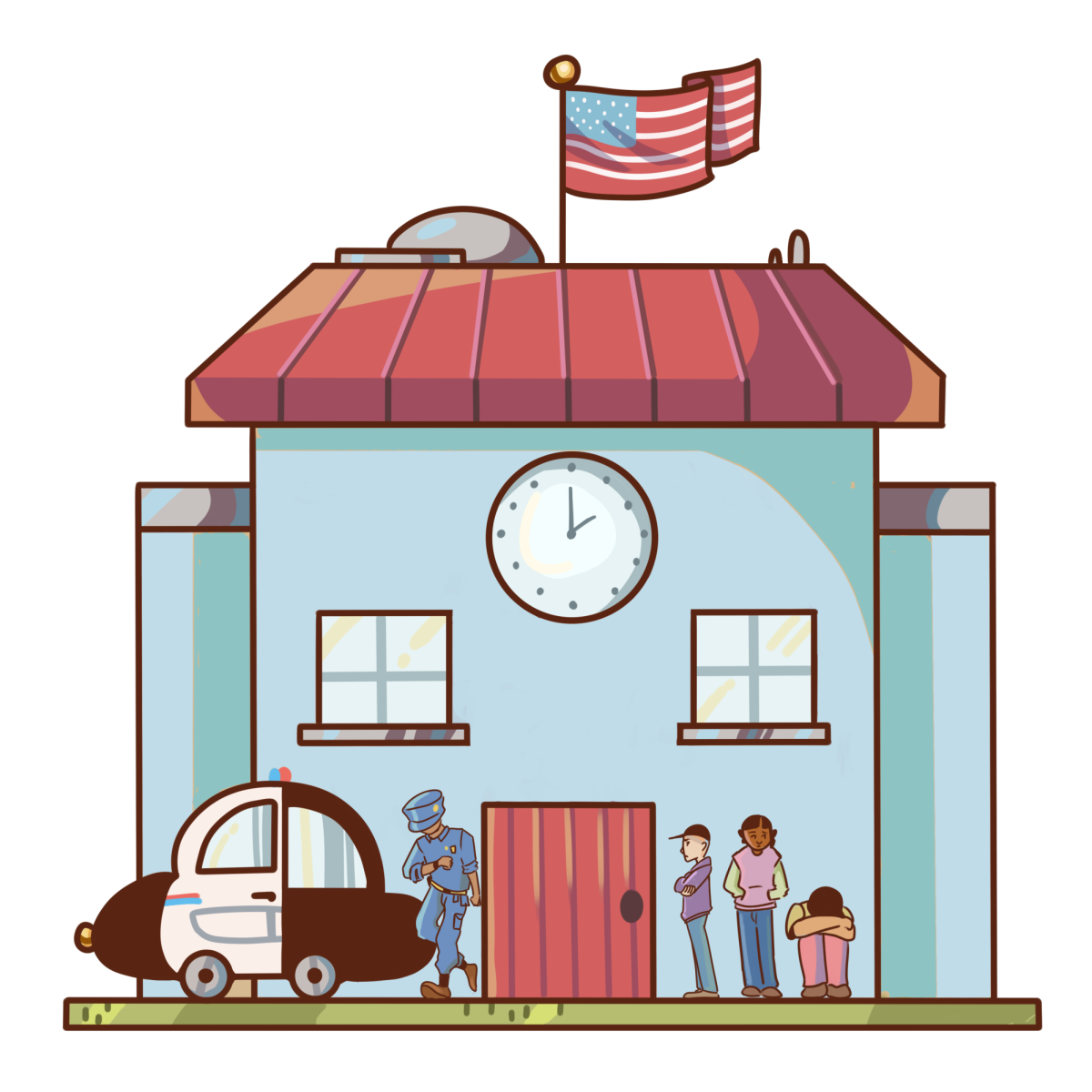Fiona*:
Self Identifies as: Less than well-off
Transportation:
This year, Fiona takes the bus. She doesn’t think a new car is within her family’s budget.
Financial Aid:
Fiona’s family receives financial aid for a majority of the tuition, with her family paying less than $100 per month, she said.
“The first year I got to school, no one told me how to keep track of the money I use from my draw account,” Fiona said. “I actually ran out of money, and my parents had to start paying out of their own pockets for a while.”
In order to prevent spending more than her allotted financial aid, Fiona said she now limits herself to a monthly allowance.
“I count the number of months we are in school and divide the amount of financial aid I receive by the number of months,” she said.
Fiona said there shouldn’t be a social stigma surrounding financial aid.
“Harvard-Westlake’s tuition is a college tuition, so it shouldn’t be a problem for people to say that they’re on financial aid,” she said.
Financial aid is also covering Fiona’s enrollment in the Oxbridge Academic Programs in Paris this summer, which costs almost $8,000. Other expenditures of her financial aid include attending school plays, buying school supplies and receiving tutoring.
Income:
No job but asks family for money when needed.
5:00 A.M.:
Fiona’s alarm goes off, and she said she doesn’t have the luxury of hitting the snooze because of the two-hour commute from her East Los Angeles home.
Lunch:
Fiona said she eats lunch at the cafeteria everyday. In the uncommon instances that she goes out with friends, she said cost is a factor that determines the restaurants that she eats at.
Fiona said that she is often unfamiliar with restaurants that come up in conversations.
“In English class, people are like, ‘I went to this restaurant’ but I’ve never even heard of it before,” she said.
Afterschool:
Fiona said she does not participate in any extracurricular activities. She also said she rarely goes out to eat afterschool with her friends.
“My friends and I don’t have the money to leave or even a car to get to restaurants,” she said. “I don’t go out that often, but when I do, my parents give me money. Sometimes, even if they give me the money, I won’t use it because it feels like a waste or that I shouldn’t [use it].”
She also believes that her socioeconomic status influences the type of people she is friends with, said.
“Money determines social connections and whether you are invited to parties,” Fiona said. “I don’t have that much money, so I don’t know anyone from that crowd.
Dinner:
“My mom usually cooks. We get [our groceries] from Ralph’s and Food4Less,” Fiona said. “We stick to fresh produce and no frozen foods.”
Harrison*:
Self Identifies as: Upper-middle class
Transportation:
Harrison said he takes the bus to and from school. Although he has a license, he said he is unsure whether his family can afford a new car next year.
“My dad is a freelance editor, so it depends on the kind of jobs he’s working on. He’s had a pretty consistent gig for the last 12 years with Dancing with the Stars, but that’s only six out of 12 months,” Harrison said.
Financial Aid:
Harrison’s family receives financial aid to cover half of his tuition, he said.
“We are living month by month, adjusting expenses based on a changing income,” he said. “We have two houses, a car payment, my sister attends private school, and I go to Harvard-Westlake.”
Harrison said his socioeconomic standing is unique among students receiving financial aid because he still has the means to pay for his expenditures. Harrison said that many students treat money as if it were disposable.
“There are students who take a plane to vacation on a random weekend,” he said. “There are people who drive a Tesla or bring their Gucci backpack to school, and I’m like, ‘Why?’”
At the same time, he said he believes the culture to be a part of Harvard-Westlake’s appeal.
“There is something very glamorous and appealing about it because everyone wants to be in that class,” Harrison said. “Going to school is like belonging in this class through their merits.”
Income:
Harrison said he has a debit card that his parents add money to whenever he needs it.
6:00 A.M.:
Harrison said he wakes up by 6 A.M. to catch the school bus from his home in Highland Park.
“We were one of the first families to gentrify it,” Harrison said. “It was a predominantly Hispanic neighborhood, but now it’s pretty hipster with a lot of shops opening up.”
Lunch:
Harrison said he eats lunch in the cafeteria. Although there is a lot of freedom to go out, cost has influenced his decision to not do so in the past, he said.
“When Dancing with the Stars is not in season and my dad is working jobs that don’t pay as well, there’s usually a shortage of money,” Harrison said. “If I don’t go out to lunch this time, then maybe I won’t have to cut down on groceries.”
Afterschool:
Harrison said he stays late afterschool to participate in various extracurricular activities, including singing and theater. His hobbies, which he makes time for after school, are possible sources of expenditures, he said.
“I buy [vinyls] for around $20 an album. I also take piano lessons at the Colburn School,” Harrison said. “I like to write, but I just need paper and pen. I act a lot, and you only need yourself.”
With a younger sister also attending private school, Harrison said that his family makes just enough to pay for all their extracurricular activities and expenditures.
Dinner:
Harrison said his family usually eats at home or, once a week, goes to local restaurants.
Amber*:
Self Identifies as: Upper class
Transportation:
Amber drives a Range Rover.
Financial Aid:
Amber does not receive financial aid. Moreover, she believes that wealth is not a factor that determines her friendships at school.
“I have friends both with and without financial aid. Money is an issue that is there, but no one pays attention to it,” she said. “You hang out with friends regardless of their economic standing. [Students] are not going to judge someone for not being as affluent.”
The only time she witnessed differential treatment due to wealth was the process of how the school determines parking spots, she said.
“The other day with parking spots, I was talking about how parking spots are decided, and I heard that if your family on the board of trustees, you automatically get better spots,” Amber said. “Obviously not everyone at Harvard-Westlake has family members on the board of trustees. It shows that you’re special because your family is giving more money.”
Income:
Although Amber does not have a set allowance, she has a credit card.
“Whenever I go out with friends, my parents make sure that I also have extra cash on me,” she said.
6:30 A.M.:
Amber takes both the Interstate 405 and Interstate 101 from her home in Brentwood.
“My neighborhood is pretty small. All the houses are gated off and pretty secluded on my street,” she said. “The houses are all relatively the same size.”
Lunch:
Amber said she usually grabs a sandwich or salad from the cafeteria. Although she doesn’t have the time to bring take out from restaurants for lunch, a lot of her friends do.
“When we do eat out, we’ll go to Café Vida in the Palisades or other small café-type restaurants,” Amber said. “Sometimes we go to La Scala [in Beverly Hills], and cost is a factor, but we all just split the bill.”
Afterschool:
On a usual day afterschool, Amber said she has an hour-long tutoring session in either chemistry or French. In addition to receiving tutoring in academic subjects, she also takes private voice lessons twice a week with two different coaches, she said.
After finishing her homework, Amber said she either spends her downtime watching TV or working out.
“Sometimes, I take a SoulCycle class or I work out at my house,” she said. “We have a gym downstairs, so I normally do an ab workout or run on the treadmill.”
Dinner:
“My mom cooks, and we get our groceries from Gelson’s,” Amber said. “We go out for sushi or Italian on special occasions.”
*Names have been changed



































